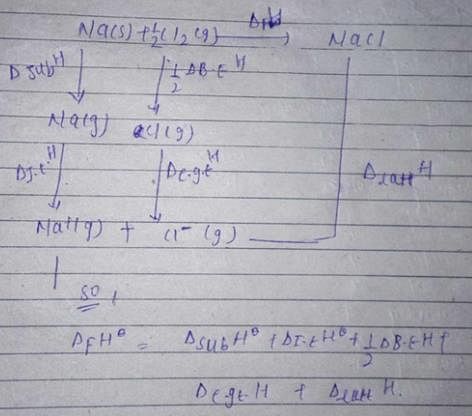NEET Exam > NEET Tests > Chemistry Class 11 > Test: Enthalpy - NEET MCQ
Test: Enthalpy - NEET MCQ
Test Description
10 Questions MCQ Test Chemistry Class 11 - Test: Enthalpy
Test: Enthalpy for NEET 2024 is part of Chemistry Class 11 preparation. The Test: Enthalpy questions and answers have been
prepared according to the NEET exam syllabus.The Test: Enthalpy MCQs are made for NEET 2024 Exam. Find important
definitions, questions, notes, meanings, examples, exercises, MCQs and online tests for Test: Enthalpy below.
Solutions of Test: Enthalpy questions in English are available as part of our Chemistry Class 11 for NEET & Test: Enthalpy solutions in
Hindi for Chemistry Class 11 course. Download more important topics, notes, lectures and mock
test series for NEET Exam by signing up for free. Attempt Test: Enthalpy | 10 questions in 15 minutes | Mock test for NEET preparation | Free important questions MCQ to study Chemistry Class 11 for NEET Exam | Download free PDF with solutions
Detailed Solution for Test: Enthalpy - Question 1
Detailed Solution for Test: Enthalpy - Question 2
| 1 Crore+ students have signed up on EduRev. Have you? Download the App |
Test: Enthalpy - Question 3
The solubility of fluorides is much less as compared to corresponding chlorides
Detailed Solution for Test: Enthalpy - Question 3
Test: Enthalpy - Question 4
The enthalpy change when 1 mole of it dissolves in a specified amount of solvent is known as enthalpy of
Detailed Solution for Test: Enthalpy - Question 4
Test: Enthalpy - Question 5
The increasing order of enthalpy of vaporization of NH3, PH3, and AsH3 is
Detailed Solution for Test: Enthalpy - Question 5
Detailed Solution for Test: Enthalpy - Question 6
Test: Enthalpy - Question 7
In Born-Haber cycle, the sum of the enthalpy changes around a cycle is
Detailed Solution for Test: Enthalpy - Question 7
Detailed Solution for Test: Enthalpy - Question 8
Detailed Solution for Test: Enthalpy - Question 9
Test: Enthalpy - Question 10
What happens to the ions, when an ionic compound dissolves in a solvent?
Detailed Solution for Test: Enthalpy - Question 10
|
129 videos|244 docs|88 tests
|
Information about Test: Enthalpy Page
In this test you can find the Exam questions for Test: Enthalpy solved & explained in the simplest way possible.
Besides giving Questions and answers for Test: Enthalpy, EduRev gives you an ample number of Online tests for practice



















